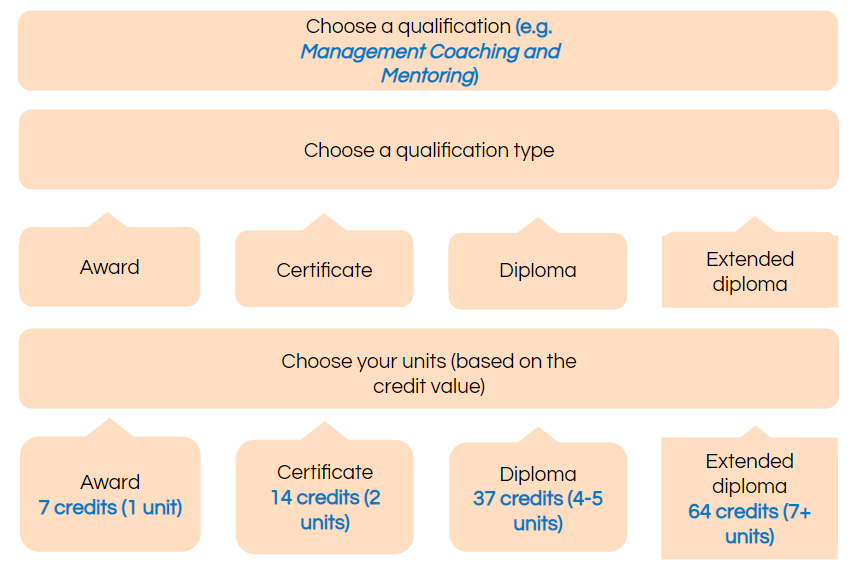CMI Level 7: Your Essential Guide

Let’s face it – CMI levels and qualifications can seem rather confusing! However, if you believe CMI accreditation is the right thing for you, then taking the time to select the correct level and type of CMI qualification will pay dividends.
To assist you in your decision, we’ve created this page about CMI level 7 (as well as others on Level 3 and Level 5) with a view to providing you with answers to many of the questions you may have.
Specifically, in this guide, we’ll walk you through everything you need to know before embarking on a Level 7 CMI qualification. Whether it’s understanding who CMI Level 7 is designed for, what’s assessed within it, or how you can get started with it, we’ve got it covered!
1. Who is CMI Level 7 for?
2. CMI Level 7 equivalents
3. What does CMI Level 7 involve?
4. How long will it take?
5. How many units will I take?
6. How is CMI Level 7 assessed?
7. Comparison to CMI Level 5
8. Top tips for passing CMI Level 7
9. Where do I sign up?
1. Who should be taking CMI Level 7?
Before we look more closely at the content of CMI Level 7, we need to establish where it sits in relation to other CMI qualifications!
Level 2/3
Aspiring, supervisory or line managers
Level 4/5
Middle managers
Level 6/7
Senior managers
Level 8
Senior directors and CEOs
CMI Level 7 is designed for senior managers within an organisation and those making strategic-level decisions. This CMI qualification is specifically designed for those in (or aspiring to be in) positions such as:
- Senior Manager
- Regional Manager
- Specialist Manager
- Director
- CEO
Besides being over the age of 19, CMI has no formal stipulations on who can take this qualification. So, if you’re a senior manager (or you’re due to become one soon) and want to take a qualification that helps you develop strategy or improve how you lead those responsible for making that strategy happen, look no further than CMI Level 7 qualifications!
However, that said, do be aware that the ultimate decision as to whether you’ll be accepted onto a course lies with the CMI provider you apply to (more on these later). CMI states that these organisations must ensure that they accept students who ‘have sufficient capability at the right level to undertake the learning and assessment’. So, if you’re still unsure whether you’d be suited to a CMI Level 7 qualification, you should speak to your prospective CMI provider.
2. What qualifications is CMI Level 7 equivalent to?
There’s a whole range of qualifications and professional bodies out there, so it’s not always easy to gauge what qualifications are equivalent to. However, CMI states that Level 7 demonstrates ‘the practical skills and competences that are rated in academic terms as being comparable to Masters Degrees and Post Graduate Certificates/Diplomas.’ – so it’s well worth getting, if you can!
3. What does CMI Level 7 actually involve?
Now it’s time to go into the specifics of what getting your CMI Level 7 qualification will involve in practice, starting with choosing the type of CMI qualification. But what CMI qualifications can you choose from?
Strategic Management & Leadership Practice
The most well-known and commonly-taken CMI Level 7 qualification is Management and Leadership Practice. This is because it covers the broadest range of topics, and is the one that’s applicable for most managers.
Within this CMI qualification, you’ll have the option of taking units such as ‘Leading Strategic Change’, ‘Strategic Risk Management’, and ‘Developing Organisational Strategy’. These units will equip you to be a great strategic-level manager and teach you skills applicable in a wide range of organisations. The full list of 22 units you can take for this CMI qualification can be found in the syllabus on the CMI course page.
The others…
This isn’t CMI’s only course however! If you’re looking to specialise in a specific aspect of management, they also offer five other Level 7 CMI qualifications:
The qualifications are:
Strategic approaches to equality, diversity & inclusion
This CMI qualification enables you to understand equality, diversity and inclusion issues within your organisation and will help you make strategic priorities to improve in these areas.
Strategic approaches to health and wellbeing
This CMI qualification will help you understand the impact of mental health and wellbeing on organisational performance. This is the perfect CMI course for you if you’re eager to create a healthy work system within your organisation!
Leadership coaching and mentoring
You should take this CMI qualification if it is your responsibility to organise your organisation’s coaching and mentoring programmes. This course covers units such as ‘Leadership coaching and mentoring skills’, which will help enable your organisation to coach and mentor its future leaders.

Professional consulting
If you’re a professional consultant who wants to develop your abilities, this is the CMI qualification for you. This will give you the skills you need to drive consultancy activities in a senior capacity.
Entrepreneurial practice
If you’re a manager who wants your organisation to become more entrepreneurial, this CMI qualification will guide you through the principles of entrepreneurial practice, highlighting the different contexts in which entrepreneurship can flourish. In this course, you’ll consider entrepreneurial practice in economic, management, sociological and psychological contexts and assess various factors impacting its effectiveness.
4. How long is CMI Level 7 going to take me?
Once you’ve settled on a CMI qualification, the next step is to choose the specific qualification type you want to achieve. At this level, CMI offers a choice of four qualifications: Award, Certificate, Diploma or Extended Diploma. Your choice in this regard will determine how long you’ll be studying for CMI Level 7.
Taking the qualification types in order:
The award
The shortest type of CMI qualification, typically, only one unit (more on units later on) from the qualification syllabus covering a single topic in depth. You should embark on this option if you cannot commit a lot of time to your studies, or if there is just one specific unit that you feel would be most beneficial for you to study, e.g. taking the ‘Marketing Strategy’ unit from the Strategic Management and Leadership qualification. However, the big downside of this qualification type is that it won’t make you eligible to apply for Chartered Manager designation (the highest status in the management profession, which allows you to put the letters CMgr after your name!)
The certificate
A medium-size qualification type, it allows you to cover a few topics in-depth. So, if you have a bit of time on your hands and believe there are several units that would be beneficial for you to take to extend your current skills and knowledge, this could be the qualification for you. Again, this qualification type won’t make you eligible to apply for Chartered Manager status.
The diploma
Includes a greater number of units and, therefore, covers a wider range of topics in-depth. Whilst it represents a significantly greater time commitment than the award and the certificate, if a broader appreciation of everything involved in strategic management and leadership is what you’re after, this is the one to choose. Crucially, this qualification type will enable you to apply to become a Chartered Manager with CMI through their ‘Fast Track’ scheme!
Some qualifications give you the option of studying for an:
Extended Diploma – This is the largest CMI qualification, requiring you to take even more units! So, why would you undertake this? Well, if you really enjoy studying and feel that you’d benefit from learning the content for the extra units, this may be a good option for you. However, as you can become a Chartered Manager after completing the diploma, you’d be right to question the benefit of the added workload this entails. Therefore, we recommend that you only do the extended diploma if you REALLY have a passion for the content – and have a lot of spare time!
In terms of time and credits (which we’ll talk more about shortly) for CMI Level 7, this translates as:
Award
6 – 9 credits
60-90 hours (typically 1-3 months)
Certificate
13-14 credits
130-140 hours (typically 3-6 months)
Diploma
37-46 credits
370 – 460 hours (typically 6-12 months)
Extended Diploma (only available for certain qualifications)
62-64 credits
620-640 hours (typically 1-2 years)
(You’ll notice that 1 credit = an estimated 10 hours of study time)

Not all of the Level 7 CMI qualifications are available in all four qualification types. For example, ‘Strategic Approaches to Equality Diversity and Inclusion’ is only available at the Award level.
The precise time your qualification will take to complete will depend on your CMI centre and your chosen learning style. However, CMI outlines a ‘Total Qualification Time’ (TQT) in each syllabus, which is an estimate of how long it should take to learn the content and complete the tasks. Don’t feel like you have to use a stopwatch to count your hours – many students can complete their studies below the estimated TQT, so it is absolutely okay if you don’t use the estimated time!
You can find the TQT for each qualification on CMI’s website. For example, if you’re seeking to gain CMI accreditation through the CMI qualification ‘Strategic Management & Leadership Practice’ at the diploma level, you’ll have an estimated TQT of 370 hours.
5. How many units will I take?
As alluded to already, the answer depends on the qualification and type you choose.
Each qualification you choose will have a syllabus that’s divided into several units. A unit goes into detail on a specific topic, ranging from ‘Managing stakeholder relationships’ to ‘Creating and delivering operational plans’. Each unit has something known as a ‘Credit value’, which is the number of credits you get from successfully completing that unit’s assessment tasks. To gain your qualification, you’ll need to undertake enough units and their related tasks such that you earn the required number of credits.
For the Diploma and Extended Diploma levels, you will often find that CMI have rules concerning what units you can choose (for example, having to choose units from different parts within the syllabus). So when you get down to choosing your units, make sure you’ve read the ‘Rules of combination’ section of the syllabus first!
We understand that there has been a lot of talk about qualifications, qualification types and units, so we’ve summarised it for you in this diagram:

In the blue text, we’ve gone with the example of the CMI Level 7 qualification ‘Strategic management & leadership practice’. In this qualification, units have a range of different credit values, from as low as 6 to as high as 11. Furthermore, CMI have split the syllabus into Part A and Part B and made stipulations on accepted combinations so you’ll need to think carefully about your unit choices!
6. How is CMI Level 7 assessed?
When you enrol in CMI Level 7, you’ll be assessed through a number of written tasks, which can be found in the assessment booklet documents which you’ll have access to once you’ve enrolled on the CMI course.
The assignments will be closely linked with the content you’ve learnt from the syllabus, and you should take this opportunity to show off your acquired knowledge as you prepare answers to the tasks that CMI have set!
Typically, each unit will have 2 tasks, although sometimes a task is divided into a part A and a part B.
Once you’ve finalised your assessment, it will either be marked internally by your CMI course provider or be sent to CMI for external moderation. For each assessment, there are two possible options: pass or refer. If you pass, you’ll receive all of the credits that unit is worth and be one step closer to completing your qualification!

The other option is that the work is ‘referred’. This means that although your assessment did not reach the required standard for a pass, you have the option of amending and re-submitting it. You’ll be told which sections need improving, so you won’t be in danger of changing something which was ok, to begin with! If your work is referred again, after this, you’ll have one final opportunity to update and re-submit it.
7. How does this differ from CMI Level 5?
If you’ve previously done a CMI Level 5 qualification, or you’re trying to decide between Level 5 and Level 7, you’ll notice a few changes between the courses and assessments.The biggest changes you’ll see are:
Focus
Moving from Level 5 to CMI Level 7, the focus shifts very much from operational management to strategic management to reflect the change in your role. For example, Level 5 Unit 518 looks at the topic of managing risk at more of an operational level, covering issues such as supplier or customer failures. However, CMI Level 7 unit 708 considers risk at a strategic level, such as covering financial risk and risks associated with organisational structure.
Length
As you progress through the various levels of CMI, you’ll find the expected length of the assessments slowly increases. Typically, you’ll find that the word-count guidance for assessments at Level 5 is between 3,000-3,500 words. However, by CMI Level 7, the word count is usually between 3,500-4,500 words. It therefore follows that much more will be expected of your answers in terms of detail.
Reading and research
As you progress into CMI Level 7, you’ll also find that the quantity of additional reading you’ll have to do vastly increases! Your assessments will require you to research, reference and comment on important theories and models more extensively than in Level 5.
8. How to pass CMI level 7
When completing your CMI tasks, there are a few crucial things you need to keep in mind:
Use the glossary!
Do you know the difference between appraising and assessing? How is a report different from a proposal? When writing a CMI assignment it is crucial that you understand exactly what you’re being asked to do. When you’re unsure, make sure you check out Appendix 1 and Appendix 2 at the end of your syllabus, which contains a glossary of the common definitions you’ll need!
Apply your knowledge!
CMI doesn’t want you to simply learn theory and write assignments. It wants to create better managers and leaders! So, to write an excellent assignment, you must show CMI that you understand the practical uses of the theory. You can do this by demonstrating an application of the theory to your own role and workplace.
Cite your sources!
In completing the tasks, you’ll have to refer and comment on academic sources and theories. CMI expects you to use the Harvard referencing system or the British Standard system when referring to other works – if you don’t reference correctly, you’ll struggle to pass your assessment! CMI has outlined the required referencing format.
This has just been a brief overview of CMI assessments and how you can pass them. If you want to learn more, we have an entire guide dedicated to CMI assessments!
9. I’m interested – where do I sign up?
Surprising as it sounds, you don’t actually register directly through CMI. Instead, you apply through a CMI centre (such as Astranti). There are over 850 CMI centres in the UK, and you can find the ones that offer your chosen qualification.
There are several factors you need to consider when choosing a provider to gain your CMI accreditation, such as flexibility, cost, and course format – if you want more information on how to choose the right provider for you, you can read our guide to CMI Providers.
The fees CMI course providers charge can vary, so it is important that you consider all of your available options. To enrol on a CMI course, you will have to pay a fee to CMI (this will be charged to your provider, so it will probably be included in your overall CMI course fee). Top-up fees are paid if you already have a CMI Level 7 qualification but want to upgrade it, e.g. converting your Award into a Certificate.

Registration fee (£)
Award – 130
Certificate – 200
Diploma – 265
Extended Diploma – 300
Top-up fee (£)
Award – N/A
Certificate – 90
Diploma – 100
Extended diploma – 110
Your CMI centre will ask for information about your background, your management experience and why you want to gain your chosen qualification, so you should really think over these questions before you embark on the application process.
Once you’ve been accepted by the centre, you’ll then be ready to get down to business and start your journey towards Level 7 CMI accreditation!
Try Our Free CMI Level 7 Sample Course
If you’re worried about diving in too deep too early, why not check out our free CMI sample course first?
You can explore our CMI level 7 course for free by creating your free Astranti account. Click below to learn more about our courses or create your free Astranti account.

Holly Dymmock
Customer Service and Mentoring Supervisor
I hope you’ve found this CMI guide useful – but if you’ve got any further questions, leave a message and I’d be happy to help!
Comments
Illustration by Storyset.
